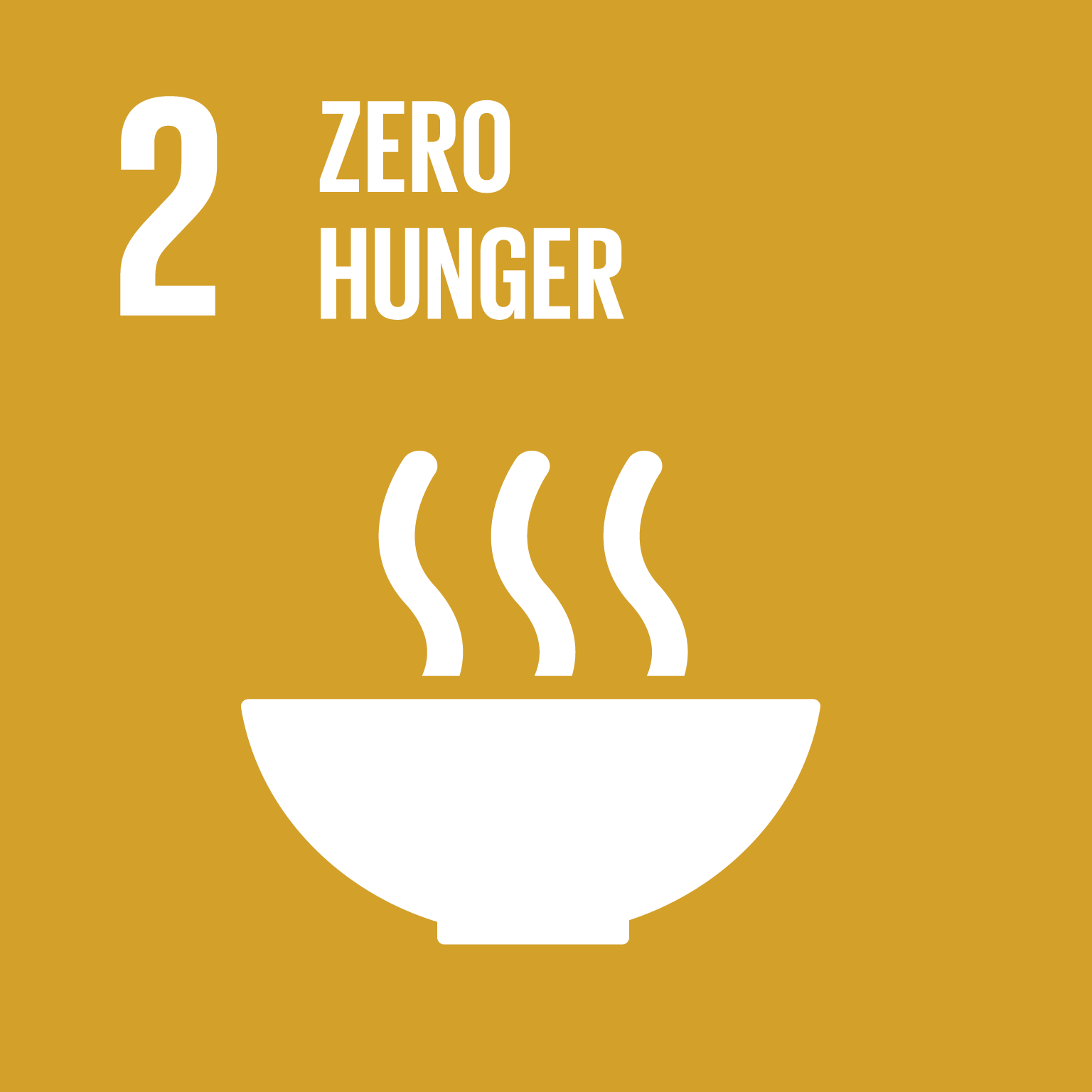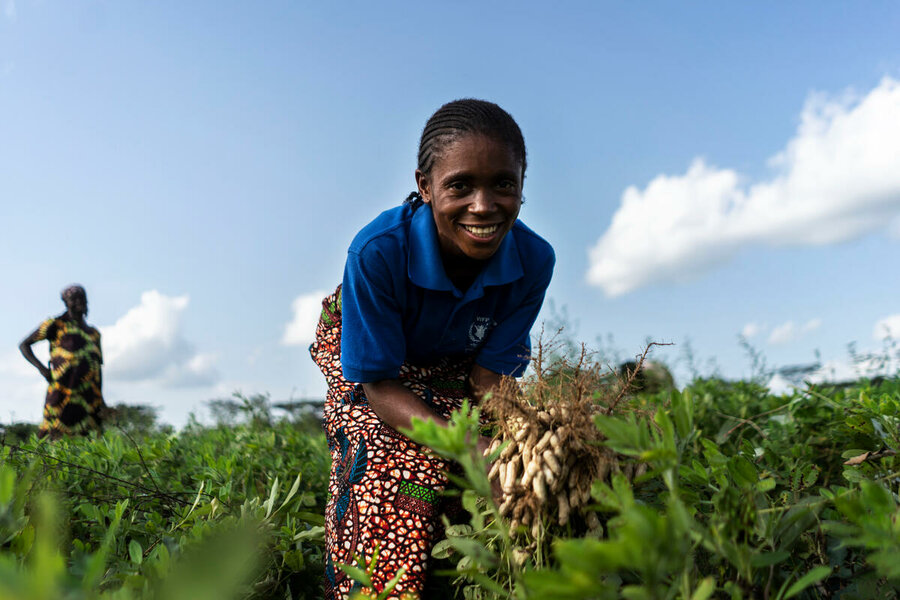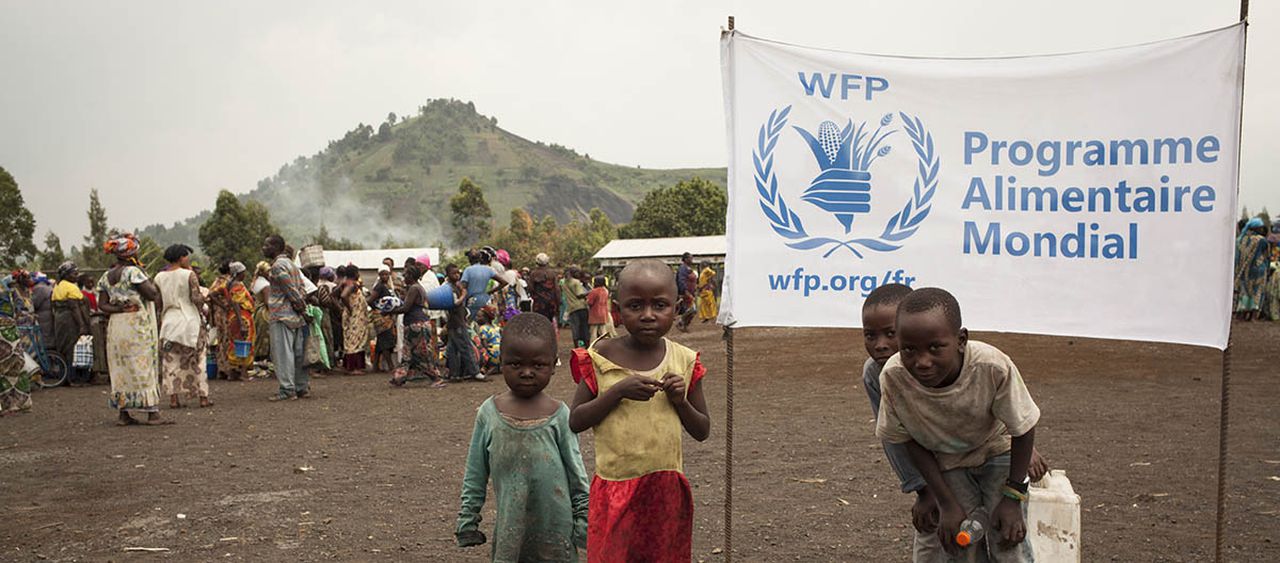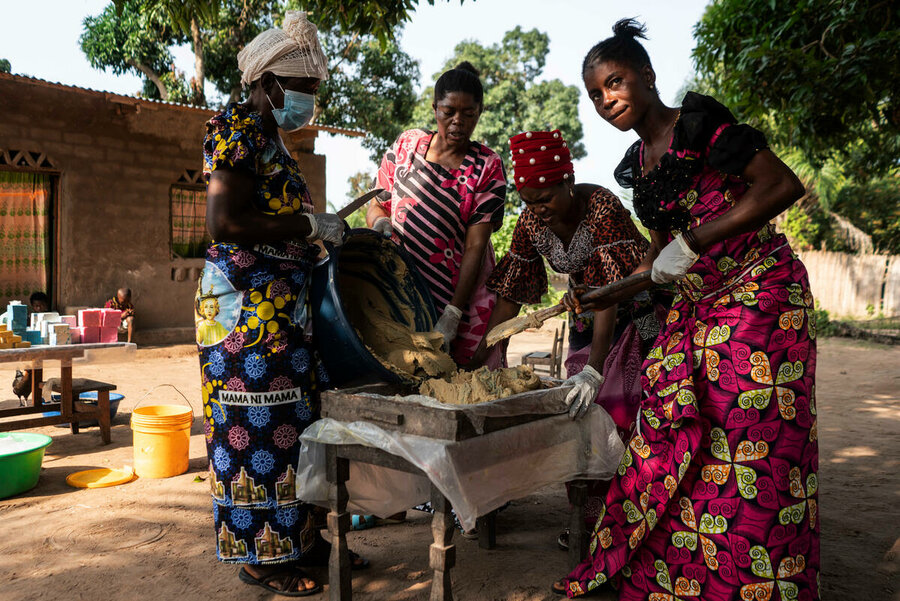 WFP-FAO Joint Resilience Programme in Tanganyika, Democratic Republic of the Congo
Building social cohesion and socio- economic resilience of smallholder farmers and vulnerable populations
WFP-FAO Joint Resilience Programme in Tanganyika, Democratic Republic of the Congo
Building social cohesion and socio- economic resilience of smallholder farmers and vulnerable populations

Challenges
The Democratic Republic of the Congo (DRC) is one of the most fertile countries on earth, with the potential to feed all its inhabitants and export food commodities. The country has approximately 80 million hectares of arable land – the second largest cultivable area in the world after Brazil – and approximately 50 percent of the African continent’s water resources. Despite its vast natural resources, the country faces the largest hunger crisis in the world.
According to the findings of the 18th Integrated Food Security Phase Classification, 21.8 million people in DRC currently face severe food insecurity. In Tanganyika Province alone this number reaches 1.5 million people. The country continues to experience prolonged conflict, particularly in the eastern region, contributing to large-scale population displacements, disrupted agricultural activities and impeding access to markets, schools and healthcare. In Tanganyika Province, clashes between armed groups and inter-ethnic conflicts, further aggravated by the impact of recurring agricultural and climate shocks such as erratic rainfall, floods and landslides, have led to massive population displacement, livelihood disruption and have devastated the economy and social fabric. One particular challenge is women’s illiteracy; in DRC the adult literacy rate is only 66.5 percent for women (compared to 88.5 percent for men).
Towards a Solution
To respond to the various challenges and needs of the vulnerable population in Tanganyika Province, in 2016 the World Food Programme (WFP) joined hands with the Food and Agriculture Organization of the United Nations (FAO) to launch an integrated programme to build community resilience and strengthen agricultural value chains. The programme contributed to economic recovery, building stronger resilience to major shocks and stabilizing the target areas by fostering peace.
The programme uses a multi-sectoral approach through a strong partnership with several stakeholders, notably sister United Nations agencies (WFP and FAO), government at central, provincial and local levels, international and national non-governmental organizations and local communities, creating synergies and building on complementarities. A coordination mechanism was established at national and local levels between the various stake- holders to facilitate programme implementation.
The programme adopted an integrated approach, covering four aspects connected to livelihood rehabilitation and poverty reduction. First, the capacities of smallholder farmers were strengthened to locally produce, handle and sell quality agricultural commodities at reasonable prices. Second, technical training was provided to local communities to restore productive assets and boost agricultural production. Infrastructure, such as roads, were built to facilitate access of producers to markets. Finally, farmer organizations received support to strengthen their capacities, such as in financial management.
The programme focused on gender equality and women’s empower- ment. Activities to this end included functional literacy training and financial services, income diversification support and capacity strengthening to implement alternative income-generating activities. The creation of Dimitra Clubs enhanced women’s leadership and ensured their participation in decision-making processes both at household and community levels.
To build peace and mitigate conflicts, awareness raising sessions and community dialogue were organized to strengthen inclusive community engagement and enhance gender equality. Staff members from different ethnic groups were included in the field project. To facilitate access to rural finance opportunities as a means of sustainable resilience, community-based saving and loans initiative was launched under the programme. Up to the end of 2020, the programme achieved numerous results. To support community-based organizations, 720 farmer organizations were established and their capacities strengthened (with women representing 30 percent of the management committees of these farmer organizations). Twenty Early Warning Committees, 22 Peace Committees, 146 Dimitra Clubs and the Community Radio of Kabalo were created to enhance discussion and trust between ethnic groups.
In terms of agricultural value chain development, 10,518 beneficiaries partic- ipated in trainings through 141 Farmer Field Schools in 2020. 386,085 metric tonnes of agricultural products were stored and marketed and 199,660 metric tonnes were sold. Sixty percent of the participating farmer organizations engaged in collective sales. Four community storage facilities and two community markets were constructed, 100 kilometres of feeder roads were rehabilitated using a Food Assistance for Assets approach. Finally, 100 percent of the beneficiaries adopted improved post-harvest management techniques and around 77 percent of farmer organizations now have access to appropriate storage units.
Results in women’s empowerment included over 800 awareness-raising campaigns organized to combat discrimination and gender-based violence. Eight hundred women were supported in income-generating activities. Over 8,000 women can now read, write and calculate after attending literacy training. The functional literacy training coupled with Dimitra Clubs helped women build their confidence and become active community members, some even occupying management positions in community and farming organizations. For 90 percent of the women, their conditions in communities changed, and community social assets improved.
Through the programme, financial capacities of the target groups improved. Now, 88 percent of farmer organizations have access to 348 operational village saving and loans associations. Over US$ 51,000 was saved and US$ 17,000 credit was granted to members.
To ensure the sustainability of such a programme, a few key aspects need to be addressed. First, the capacity of local communities must be strengthened, if they are to become self-reliant. Second, local communities and authorities must be actively engaged in the project. Investment in infrastructure and facilities are likewise key to sustainability.
To replicate the programme’s practices, it is necessary to consider that fundamental origins of inequalities and social injustice between men and women are enshrined in illiteracy, exclusion of women from decision-making processes and unequal access to assets. To better understand the gender context in the project implementation areas and address the problem, a diagnosis of specific gender issues was conducted in both territories by the project team. Based on the results of this study, the activities of the gender equality component of the project were fine-tuned to better respond to the specific needs of the beneficiaries. These activities are important, and serve as mechanisms to trigger the improvement of the social and economic status of women, reinforce peaceful cohabitation and promote gender equality.
Some of the practices in this programme were shared with countries in Africa, such as the creation of the Dimitra Clubs. Other countries with similar contexts of conflict and large population displacement, such as Niger, investigated the potential to replicate the clubs. To date, more than 6,000 Dimitra Clubs, with 180,000 members have been established in eight sub-Saharan African countries. Further South-South exchanges can enhance dialogue among countries in Africa to learn from this experience and adapt it to other countries.
Contact Information
Countries involved
Supported by
Implementing Entities
Project Status
Project Period
URL of the practice
Primary SDG
Primary SDG Targets
Secondary SDGs
Secondary SDG Targets
Similar Solutions
| NAME OF SOLUTION | Countries | SDG | Project Status | |
|---|---|---|---|---|
Accelerating the Transformational Shift to a Low-Carbon Economy in Mauritius Towards supplying 35 percent of the country’s energy needs with renewables by 2025 |
Côte D'Ivoire, Democratic Republic of the Congo | 05 - Gender Equality 09 - Industry, Innovation and Infrastructure 13 - Climate Action | Ongoing | View Details |
Accelerator Labs Network Following collective intelligence methods to address emerging sustainability challenges and the growing demand for local solutions |
Côte D'Ivoire, Democratic Republic of the Congo | 08 - Decent Work and Economic Growth 13 - Climate Action | Ongoing | View Details |
Adaptation for Smallholder Agriculture Programme Establishing better working conditions for smallholder farmers through the use of good practices and new technologies |
Côte D'Ivoire, Democratic Republic of the Congo | 08 - Decent Work and Economic Growth 11 - Sustainable Cities and Communities 13 - Climate Action 15 - Life on Land | Ongoing | View Details |
ADAPT PLAN in Malawi |
Côte D'Ivoire, Democratic Republic of the Congo | 01 - No Poverty 05 - Gender Equality 11 - Sustainable Cities and Communities | Ongoing | View Details |
Addressing Racial and Ethnicity-based Discrimination and Strengthening the Protection of Rural Afro-descendants UNFPA supports data disaggregation as a tool to fight racism and ethnic discrimination |
Côte D'Ivoire, Democratic Republic of the Congo | 01 - No Poverty 02 - Zero Hunger 03 - Good Health and Well-being 05 - Gender Equality 06 - Clean Water and Sanitation 11 - Sustainable Cities and Communities 16 - Peace and Justice Strong Institutions | Ongoing | View Details |


